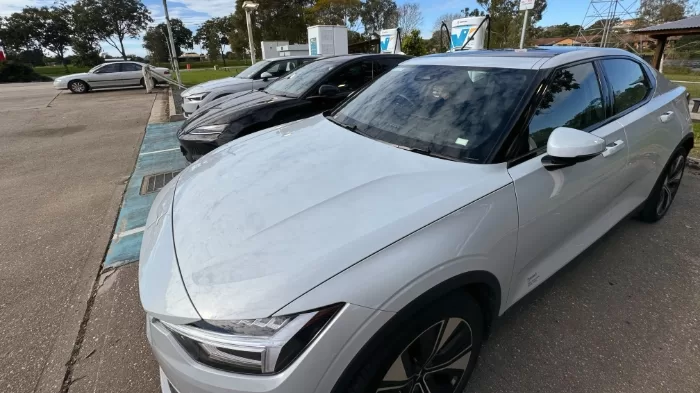
Tesla has long sold on the idea that its supercharger network gives it a big advantage over other makes of EV… so I headed out on a road trip in a rental Polestar 2 to see just how true that is right now in Australia.
As regular readers would be aware, my daily drive hasn’t involved petrol for many years now, starting out with a Nissan Leaf before purchasing a Tesla Model 3 just over three years ago. At the time, the selection available of EVs was not as wide as it is now, and while I’m no fan of Elon Musk at all – I maintain he’s a berk – it made more sense than anything else I could buy.
That Model 3 has been my go-to drive for many road trips across Australia, giving me insight into the evolving picture when it comes to fast recharging for longer road trips.
Earlier in the year, I repeated a trip from Sydney to Adelaide and back, and I was keen to see how that trip was reflected along other popular routes.
Also read:
Driving Sydney to Adelaide (and back) in an EV: Part One
Driving Sydney to Adelaide (and back) in an EV: Part Two
Driving Sydney to Adelaide (and back) in an EV: Part Three: There and back again
EV Road Trip: Sydney to Adelaide: Are EV chargers in Australia getting easier to find?
So that’s just what I did, choosing the busy school holiday time in New South Wales to make a trip from Sydney to Iluka (just north of Grafton on the NSW North Coast) and back.
It’s a trip that I’ve done before in my Model 3, so I was well aware of how Tesla’s charging infrastructure could handle that trip at the times I’d done it.
It’s slightly different now (which I’ll get to in a moment), but I wanted to go a little further than with my second Adelaide trip, and not just make the trip in the Model 3 using alternative chargers.
The last time (again, this has slightly changed) I’d made that trip, the Tesla superchargers I’d use – Heatherbrae, Port Macquarie and Coffs Harbour – were all locked purely to Tesla vehicles. In fact, those charging locations still are (though others are not), but that made me even more curious to see how the alternatives stacked up.
That’s how I ended up making the trip not in my own Model 3, but instead in a Polestar 2.
With full disclosure, this wasn’t a Polestar 2 loaned to me by Polestar, but instead one supplied by Thrifty/Hertz. They offer EV rentals in Australia and are keen to get the word out about both the fact that they do, and that road trips are indeed manageable in an EV.
Keeping that full disclosure in mind, while the car I was in was a “rental”, Thrifty provided it to me at no charge.
This isn’t really a review of renting an EV in Australia, because my experience has been decidedly atypical; all I had to do essentially was pick up the Polestar 2 and drop it back at a Thrifty location in Artarmon, so I can’t speak to costs, contracts or anything like that.
My own experiences with rentals suggests to me that this kind of thing can be massively circumstantial anyway depending on your age, driving history and how urgently you need a car.
Honestly, beyond the fact that you’re never putting petrol or diesel into it, it didn’t feel much different from any other rental experience… but I digress. The point here is that I want to be upfront and disclose clearly, which I’ve done. On with the road trip!
As noted, this wasn’t a “new” road trip to me at all, so I already knew how I’d handled it previously with stops at Heatherbrae, Port Macquarie and Coffs Harbour for recharges. I suspect with a little gumption and careful driving it might be feasible as a two-stop drive (anyone tried that?), but I prefer to drive and charge on the side of caution – plus those stops allowed for reasonable meal and toilet breaks along the way anyway.
One big point of difference from the last time I’d made this trek is that Tesla’s opened up a number of new sites along the Pacific Highway, specifically at Taree and Port Macquarie, both 12-charger sites that are in fact open to all CCS-style EVs.
Theoretically I could use those with the Polestar 2, but I wanted to check alternate charging options, so the Tesla chargers were somewhat ignored. I was ready to use them if I hit a point where I’d otherwise be stuck, but non-Tesla was what I was shooting for.
One obvious limitation here: My sample size is, well… one.
Me.
Happy to hear other’s experiences below to compare notes, but I figure with the huge mass of misinformation and range anxiety around EV usage that a trip like this could be instructional even if it is only a single data point.
Sydney to Iluka is a trip of roughly 650km each way, so I was looking at a total round trip of about 1,300km, with a couple of diversions for personal reasons on the way.
So in the first Sunday of a set of NSW School Holidays – typically the worst kind of time to try this drive, because I like challenges – I hit the road.
First Stop: Karuah, NSW
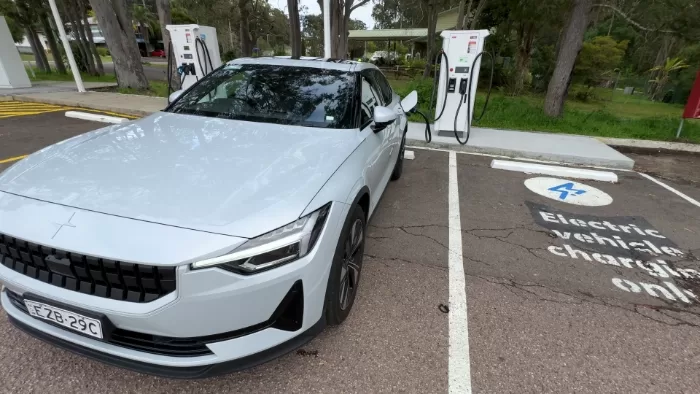
Charging time: 11 minutes
Charge: 10.88kWh
Network: Chargefox/NRMA
Cost: $7.07
Karuah was a tactical choice – the Polestar 2’s calculations wanted me instead to stop at Taree Services, but older experience there (and plenty of Plugshare reviews) shows those chargers as often crowded or out of order – and sometimes somehow both at once! It was early, too, and I wanted to grab a road breakfast of some sort.
Worth noting that I could have used the new and open Telsa Superchargers at Raymond Terrace, not that far from Karuah, because they’re open – but I would have paid more for the power, as Tesla does that for non-Tesla vehicles, and I don’t believe the fact that my account shows ownership of one Tesla vehicle would amount to a cheaper rate on any secondary non-Tesla ride – does anyone know for sure?
While I could grab charge (not particularly quickly – 50kW out of a charger that’s claimed to do up to 180kW), it was trickier to grab anything to eat, or, as it turned out, any petrol had I been in an ICE vehicle. When I was visiting, the entire forecourt of the servo was rubble, presumably being replaced, so the only reason to head there would have been for a bottle of coke or to charge a car. Deciding that the slower speeds didn’t bode well, I didn’t hang around all that long or for all that lengthy a charge. Resetting the trip, I decided to let the car pick the next charging stop, which ended up being…
Second Stop: Thrumster, NSW
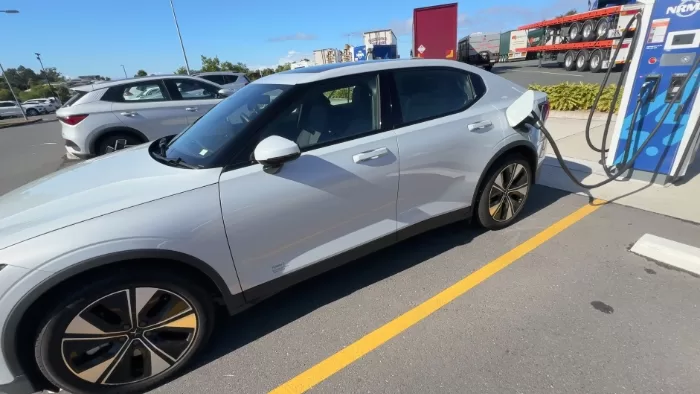
Charging time: 36 minutes
Charge: 41.87kWh
Network: Chargefox/NRMA
Cost: $27.22
I’ll be honest here and say I wasn’t 100% sure where Thrumster was, but that’s because it’s essentially the suburb name for the outskirts of Port Macquarie, at a service centre I’ve long called “the donut” (ask my mother, she used to live in the area so it might be local expression too).
A longer and slower charge, but one that was filled almost entirely with going and getting what ended up being brunch, so the actual “wait” time didn’t feel like it was much at all.
Of note, this was – and I expected this once I figured out where Thrumster is – pretty busy, with only one CCS plug available when we turned up, and a steady turnover of cars and small queue while we were there. Nobody waited more than about 5-10 minutes, though again with fresh Tesla chargers also nearby in Thrumster, they could have headed there in theory, albeit again at a higher cost per kWh rate.
A quick diversion into Port Macquarie itself for a little shopping break – I do feel on these longer road trips it’s worth also stopping to smell the flowers as it were – and I was back on the road.
Third Stop: Macksville, NSW
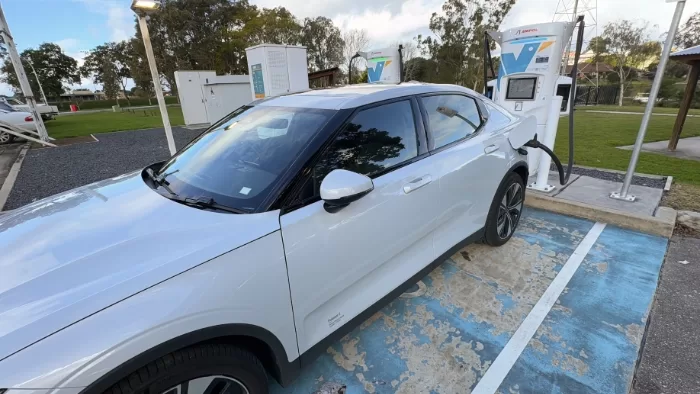
Charging time: 21 minutes
Charge: 18.98kWh
Network: Evie
Cost: $13.86
It had been a while since I’d been in Macksville, because it’s been bypassed for some years now, but while the car wanted to charge in Coffs Harbour, I chose Macksville instead for the same reasons I’d chosen Karuah earlier; despite its size Coffs doesn’t have that many non-Tesla chargers, and their reputation for reliability is not good.
Plus, frankly, the last time I was in Macksville there was an excellent bakery there, and I fancied something sweet. My desires for sugary calories were not to be met; the bypass has clearly had an economic effect on Macksville and it was no longer there, darn it, but charging was easy to do while I walked to where the bakery used to be.
It’s at an Ampol service station, and I did worry that I’d need to set up the Ampol app – it was one of only a handful I don’t already have set up – but it’s actually an Evie site, so a single tap of my Evie RFID card was all that was needed to get those sweet electrons flowing.
Quick tip: Pick up an RFID card – Evie used to do them for free, though I think they’re $5 these days – and register it across services such as Evie and Chargefox for very simple tap-and-go charging prior to your trip. It’ll save you app stress as well as mobile coverage stress along the way.
The other big advantage stopping here was that it was the last charge needed on the way up to Iluka, where I could stop down for a few days and granny charge from a solar rooftop array. Environmentally sound and entirely affordable too!
My rest break – very much needed, even if it was also in the middle of the sad closure of the Allure Media titles — over, it was time to head back to Sydney. This time, while I wanted to keep to my not-using-Superchargers mantra, I also wanted to see if it was feasible to do the run in just two charging stops. Which (spoiler), it was, but not without a few wrinkles.
Fourth Stop: Macksville, NSW

Charging time: 29 minutes, plus 10 minutes wait time
Charge: 38.39kWh
Network: Evie
Cost: $28.03
Technically, the first stop on the trip back was in Yamba to take part in Yamba Parkrun – again, I firmly think it’s a good idea to enjoy the places you go through if you can, not just grind mindlessly on what is otherwise quite a dull highway – but Yamba isn’t that far from Iluka or blessed with much in the way of charging infrastructure. For this leg, the Polestar 2 agreed with me about charging locations, as did Plugshare, although this was where I discovered that Plugshare’s ability to track in-use chargers isn’t all that great.
When I arrived there, both charging sites were in use, one by a Polestar 2 on 50%, and one by a BYD Seal on about 90%. The Seal driver wanted to get to the full 100% in order, as per his estimates, to get to Sydney entirely without having to stop to charge. I guess that’s maybe feasible with some very economical and slow driving (though I’ve not driven the Seal), but arguably not the smartest way to manage charging time. The last 20% of most batteries is very slow, and you’re usually better off getting on the road if there are chargers available – which of course as I’d already tested, there were. But he was there first, so I just had to wait about ten minutes for him to finish charging before I could plug in.
While I do think he arguably wasted some time overcharging that could have been more elegantly handled with a two-stop trip (that he might have had to do anyway), I was thinking similar thoughts, charging up to a point where the Polestar 2 reckoned it would hit Karuah with around 12% battery left. That, I figured, would give me enough of a buffer if the demolition of that servo was going to extend to those chargers, with some at Heatherbrae (BP) or indeed the Raymond Terrace Tesla Superchargers if things got desperate.
Fifth Stop: Karuah, NSW
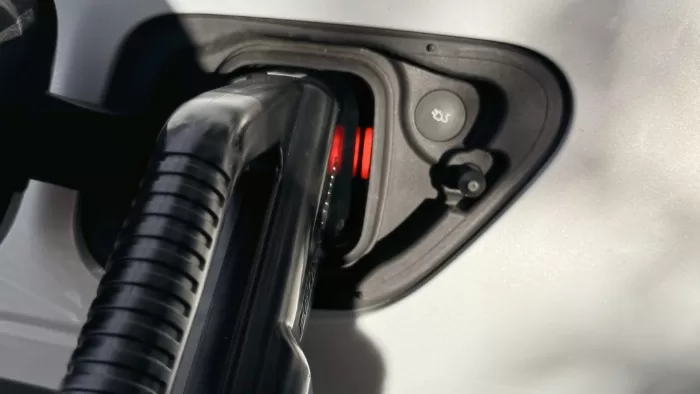
Charging time: 38 minutes plus 10 minutes wait/fixing time
Charge: 37.61kWh
Network: Chargefox/NRMA
Cost: $24.45
The Polestar 2 outdid itself in charging terms getting to Karuah, almost certainly helped by a lot of use of cruise control to keep speed while not wasting power along the way. Its initial estimate was that I’d roll into Karuah with 12% battery remaining, and I got there with 28%. All I needed now was enough charge to get home, where I could then more affordably charge up the Polestar 2 enough to drop it back into Thrifty, which I figured would comfortably be around 60-70%.
However, here I hit two problems in quick succession. Plugshare was sure that all three chargers were available… but only one of them was, with a Polestar 2 in one site and a BMW in the other. So use the third plug, right?
Well… yeah… but kind of nah. The third charger would not actually initiate a charge at all for reasons that still mystify me. I tried RFID authenticating and then plugging in to no avail. I then tried plugging in an RFID authenticating, again, same result. Mobile coverage was reasonable, but trying via the Chargefox app also yielded the same result.
Annoying, and to pour a little salt in the wounds, while the Polestar 2 that was also charging was on around 50%, the BMW was 100% charged, and had been for some time according to the display on the Chargefox charger… with nobody around at all. That’s just poor form, people – it’s really not that hard to track when your vehicle should be fully charged, and it’s polite to share resources too. Chargefox is experimenting with idle charging, and if I’m honest, I’ve never more wished they had it than right then.
So I weighed up my options, and whether it was time to admit defeat and head to Raymond Terrace, when my brain clicked in that I had another option, namely calling Chargefox to report a non-functional charger.
Checking Plugshare again, I wasn’t the first person to hit this precise error on this precise charger, so I didn’t rate my odds fully. Chargefox’s support people were pretty good, and we walked through trying to charge, though at first they did think I was trying to charge the BMW (which also reported to them that it was full, grr…).
Finally after trying both RFID and app again, they were able to manually start a charge from their end, which meant I could start charging. About five minutes into this, the BMW driver showed up, and I pointed out to them that it was poor form to leave a fully charged car. They didn’t seem to care, which was very, well, sigh… I guess it shows that there are still somewhat selfish drivers no matter your propulsion source, if you follow me.
The Karuah charger was still being slow, too, so while even when the BMW headed off (and after the other Polestar owners had arrived and headed off) the best I could get from it was around 60kW, which was why it was a notably slower process. I figured I may as well see this experiment through to the end, so I stayed and charged there, though I have few doubts that the Raymond Terrace chargers might have been faster, even though the Tesla app suggested to me that they were quite busy, as were the locked-down Heatherbrae ones.
Conclusions
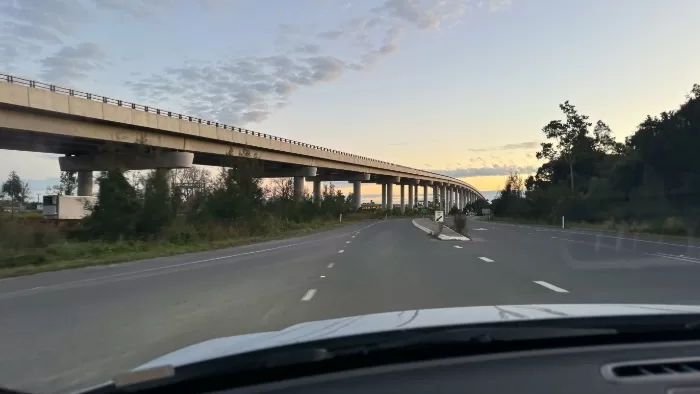
Total distance: 1300km
Total charging cost: $100.63
Cost per km: 7.74c
Pretty clearly that’s cheaper than I could do it in any ICE vehicle – that’s long been the case for EV charging even as “free” charging alternatives have somewhat dried up, though I did benefit from around a 60% slow battery fill at my destination at no cost to me, the last time I’d driven that in a petrol car – many years ago now, when petrol was considerably cheaper than it is today – I’d be lucky to do that trip just one way for that price.
But what about the Tesla Supercharger advantage?
I’d say if Tesla had kept its network to itself (and I personally do think it’s an overall plus for EV drivers that it hasn’t), then it might be up for grabs, even though it’s pretty clear that trips of this length are quite feasible right now.
Yes, there absolutely is a need for more chargers at specific sites, and a little more reliability and charging speed wouldn’t go astray either. I doubt I’ll drop into Karuah for a charge any time soon unless there’s a clear sign that those chargers are behaving better and critically faster too, for example.
However, with the newer Tesla sites having taken public charging money to be built, they’re open to all vehicles, albeit at slightly higher charging rates if you’re not in a Tesla vehicle.
For most of us while (as with ICE vehicles) cheaper power/fuel is generally preferable, the key factor is in being able to power up your vehicle when you need to – and pretty clearly that’s something that’s becoming ever more possible for longer road trips, even on popular routes at peak times.
What’s your take? Have you done this drive – I’m sure plenty of EV drivers have – and what happened to you? Let me know below!
Was this review useful to you? Support independent media by dropping a dollar or two in the tip jar below!
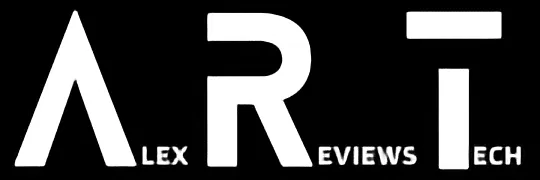





We recently covered the same ground as part of a Gold Coast > Canberra > Melbourne > Gold Coast trip in a Volvo XC 40 recharge. All up covered around 4000 km. We’d done the trip twice before so we were prepared for the inevitable delays but we drove right up and plugged in without any waits at all. There are a lot more chargers available these days. We try to avoid Taree for the reasons you stated but Coffs is OK. The new chargers at Cameron Park are worth a visit if only for the nearby bakery. The chargers in Ballina shopping centre are also very slow like Karuah.